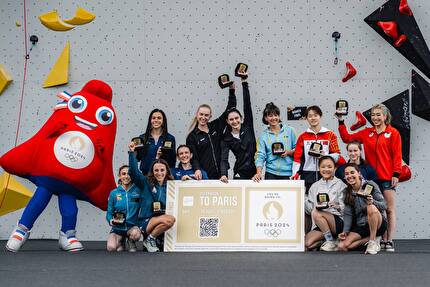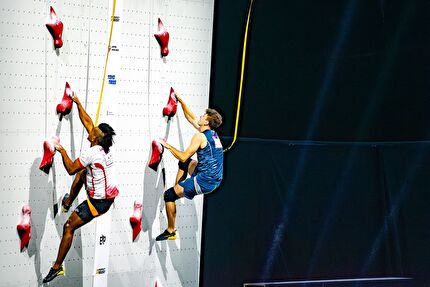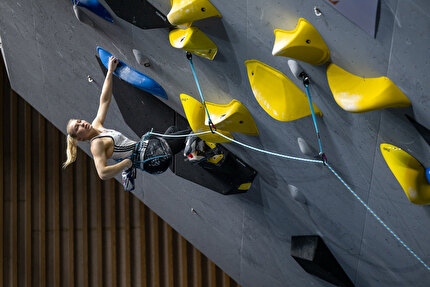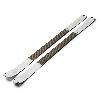Chamonix, nothing will ever be the same again
In the past Chamonix was THE competition, for spectators and athletes alike, and none of the best in the world would ever dream of missing it. Instead some of the biggest names in sport climbing were notable for their absence: Garnbret, Schubert, Megos, Kalucka, Miroslaw, Hunt, Anraku, Narasaky, Desak, Grossman, Rabatou, Seo... the list goes on and shows clearly that they had other priorities. Before I try to explain why, here though are the results.
After qualifications were washed out and eventually postponed on Friday, the Speed event was watched by at least 10,000 spectators and the spectacle was nail-biting. Right from the outset Matteo Zurloni, with the new European record holder with a blistering 4"97, seemed to be give the world record holder Samuel Watson a run for his money, but in the head to head clashes Zurloni made too many mistakes and ground to a halt, while the American won with ease, eventually taking gold after beating China’s Wang Xinshang, who had to settle for the silver. In truth both slipped and recovered in the final, posting times of 6.24 for Watson and 7.76 for Wang. Third place and the bronze medal went to Spain’s Erik Noya Cardona who took advantage of a slip and fall from Japan’s Omasa Ryo in the bronze medal match.
In the women's field, another Chinese athlete has improved dramatically in just a month: this time it is Shaoqij Zhang, who sets a series of times that she never even got close to in the past. How do the Chinese improve from 3 to 5 tenths of a second in just 30 days? This was the question everyone was asking themselves, including one of the biggest players who failed to qualify for the Paris Olympics, Natalia Kalucka, who finished second. South Korea’s Jeong Jimin completed the podium winning the bronze medal, her second podium after winning bronze in Wujiang at the start of the season. Jeong beat China’s Wang Shengyan in the small final with a time of 6.64 compared to Wang’s 7.33.
In the women's Lead the final was decidedly boring and evidently too easy, with Ai Mori eventually taking her fourth career gold ahead of Jessica Pilz who settled for silver for the tenth time in her career. Both athletes topped the route and Mori secured gold thanks to countback to her better semi-final performance. Third place went to Kotake Mei who claimed bronze on hold 44+, the same highpoint as home favourite Zélia Avezou who slipped to fourth due to countback. 16-year-old Austrian Flora Oblasser produced her best performance to date, finishing on hold 42+, along with teammate Mattea Pötzi and the two were once again split by their semi-final result. On hold 41+ USA’s Anastasia Sanders and Slovenia’s Mia Krampl completed the final standings finished seventh and eighth respectively.
So now let's see why even a super competition like Chamonix has become a slave to the Olympics. I'll give it at go and pose the question: what the hell is going on in climbing?
Chamonix isone of the best and popular competition, last year the Speed and Lead finals were watched by 8000 people (on the basis of my experience of concerts...) or 15000 (according to speaker), this year a total of 45,000 attended Cham over the weekend! Considering that an Italian basketball or volleyball final does not garner similar crowds, it is understandable why, in France, climbing has once again overtaken football in terms of number of people who practice it. Don't forget that this is the country that in 1985 proclaimed Patrick Edlinger sportsman of the year, ahead of Michel Prost and Michel Platini...
But in recent years, even a grandiose competition like that in Chamonix, with its countless 9a/b athletes mingling with tourists and hikers admiring the best in the world, must come to terms with the ghostly presence of the Olympics. Moreover, on French soil. The few who qualified for Paris 2024 are fully concentrated on the real objective, while all those great athletes who failed to qualify view the World Cup as a chance for redemption and as the competition of a lifetime.
In reality though a World Cup stage never is the one all and be all, just like an attempt at a crag is never finite. In contrast, the tension felt and seen in Budapest a few weeks ago, with some of the very best reduced to tears after the competition, simply does not exist here. It's a huge party, where the entry level for a semi-final is 8c onsight for the men and 8b/8b+ for the women, and ballistic times for the Speed, which has now transformed into a succession of boulder problems 15 meters high. Those who don't reach the semi-final or the final are disappointed, of course, but the Briançon stage takes place in less than a week's time, and there's no waiting another 4 years as in the Olympics. In short, all the drama that smacks of American athletics or swimming trials and the entire psychological aspect is missing.
In Chamonix the athletes who decided to take part climbed far more fluidly, all except for Mori who actually always is extremely fluid. Nowadays in Speed there are ten formidable athletes capable of climber faster than 5", two years ago the record was 5"20. In women 15 can go faster than 7", in 2021 there were only two. The level of competitions increased drastically in 2023, the pre-Olympic year... This is because athletic and technical preparation has become even more targeted. Even one month too much at the crag, in a dedicated two-year training cycle, is now, just like with all other Olympic sports, a void that is almost impossibile to fill.


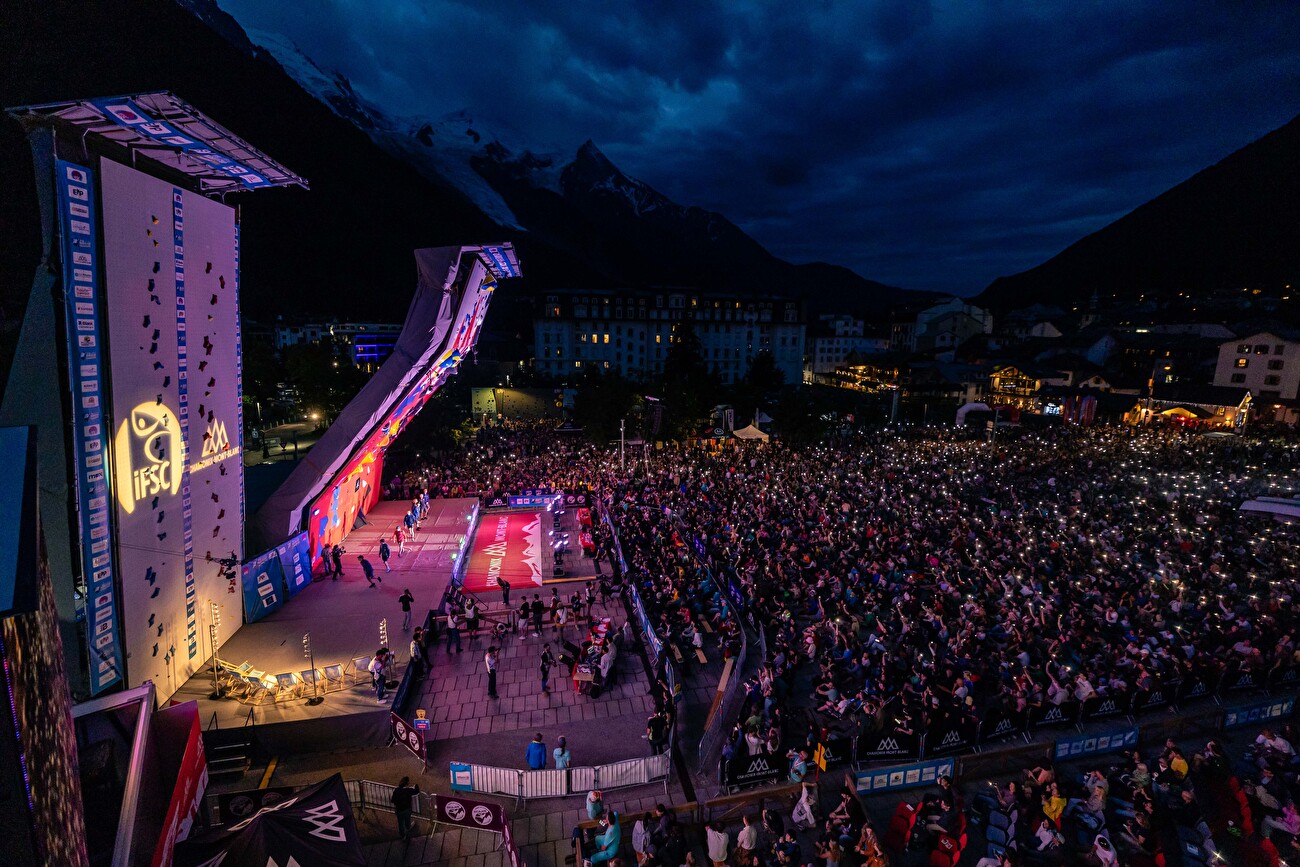
 1 / 36
1 / 36
 Copia link
Copia link

 Jan Virt
Jan Virt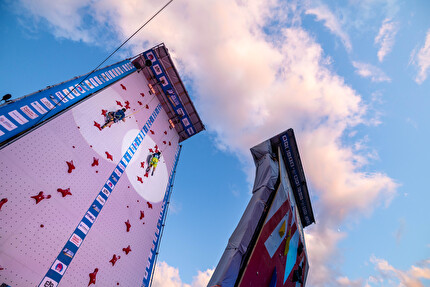
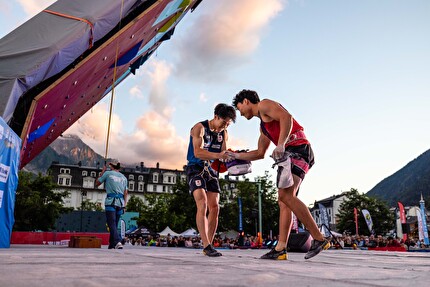
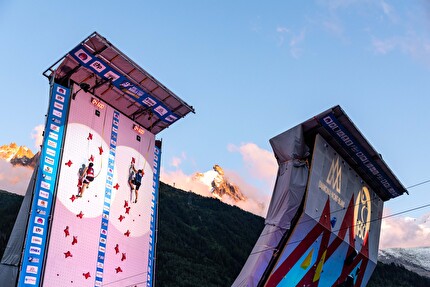
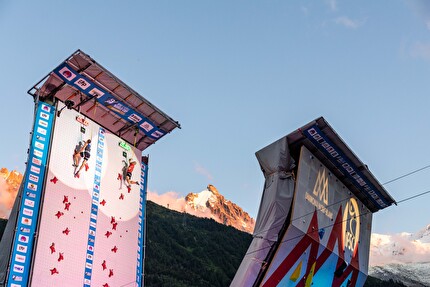
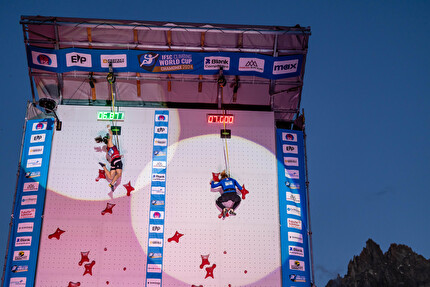
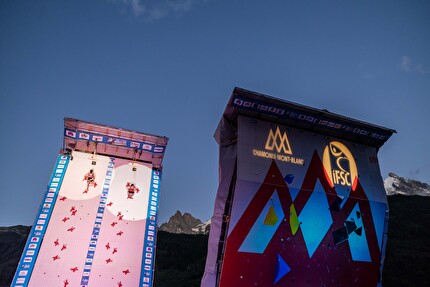
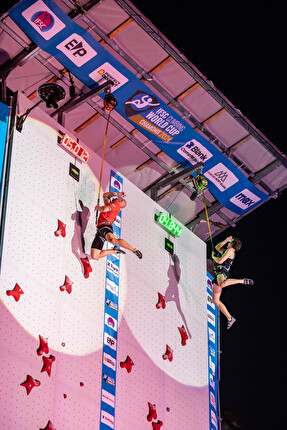
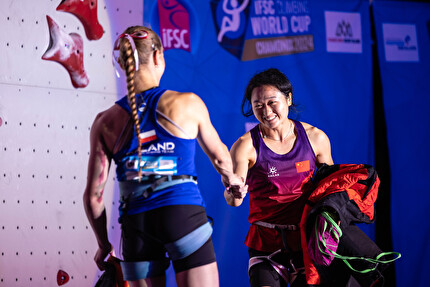
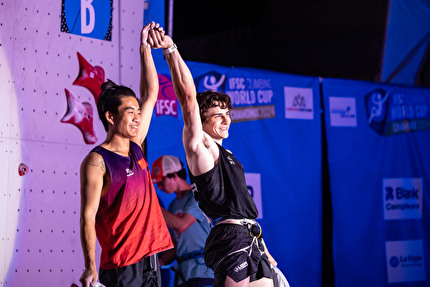
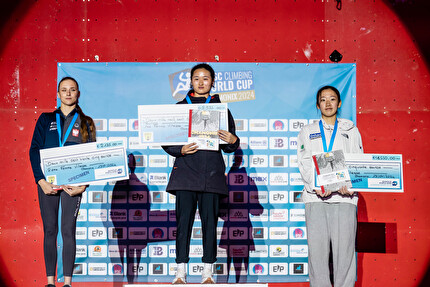
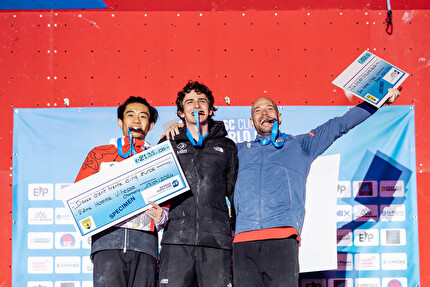
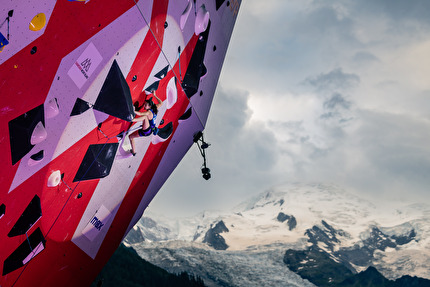
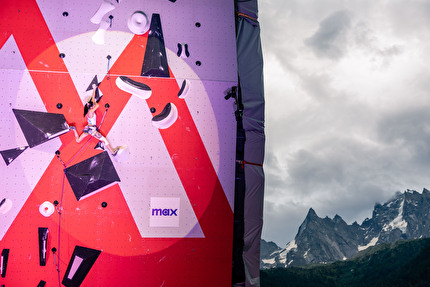
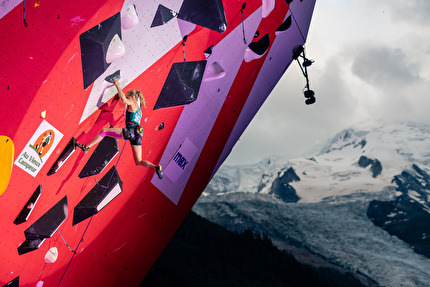
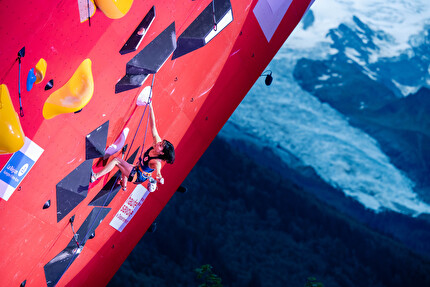
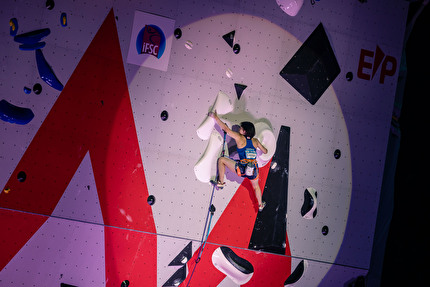
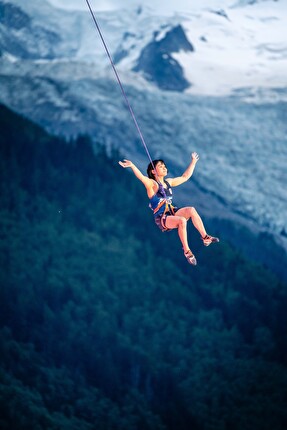
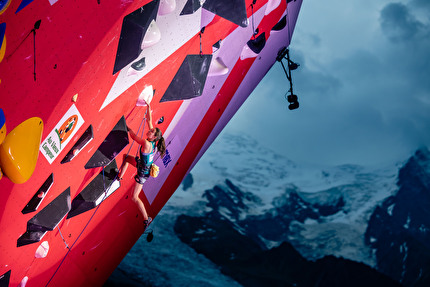
 See all photos
See all photos